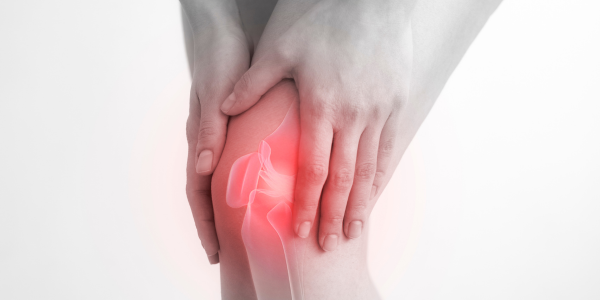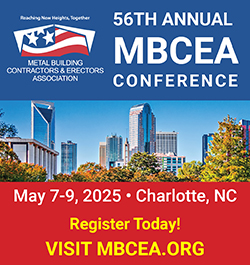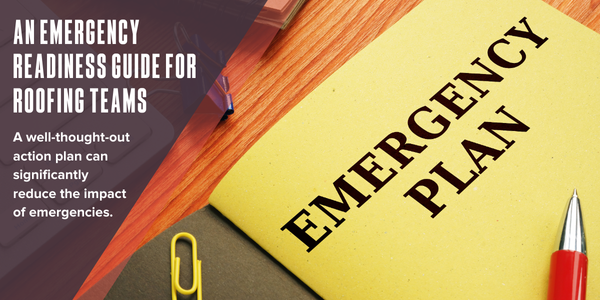UP TO THE MINUTE
How to minimize repetitive motion risks

By Cotney Consulting Group.
The impact of repetitive motion injuries on roofers and how to combat them.
Repetitive motion injuries (RMIs) are a growing concern in the roofing industry. Whether using computers for administrative tasks, operating machinery or engaging in physically demanding labor, roofers risk developing RMIs due to repetitive movements, awkward postures and insufficient rest periods. Roofing contractors can protect their workforce and promote long-term well-being by recognizing potential hazards and adopting ergonomic practices.
Understanding repetitive motion injuries (RMIs)
RMIs occur when muscles, tendons and joints are overused or strained through repetitive tasks, forceful exertions and awkward positions. In an office setting, RMIs are commonly linked to computer use. Still, in the roofing industry, they extend to manual tasks such as hammering, lifting materials or using handheld power tools. Over time, these repetitive actions can lead to conditions like tendonitis, carpal tunnel syndrome and muscle strains.
Ergonomic workstation setup for office-related tasks
Roofing businesses often require employees to handle administrative tasks, which can involve long periods of computer use. An ergonomically designed workstation is one of the most effective ways to reduce the risk of RMIs for office workers. Here are some key guidelines to create a safer and more comfortable workspace:
- Adjust the screen height: Position the top of the computer screen at or slightly below eye level. This alignment minimizes neck strain by allowing the screen to be viewed without tending the head forward.
- Use a document holder: Placing documents at the same height as the computer screen reduces the need for repetitive neck movements when referencing papers while typing.
- and arm strain.
- Support the spine: A chair with adequate lumbar support is essential. Ensure the spine maintains its natural curve and that the feet rest comfortably on the floor or at a footrest to encourage a relaxed sitting posture.
- Use accessories: Wrist rests, telephone headsets, back supports and footrests can alleviate stress on the arms, neck and lower back. These simple tools help distribute the body's weight more evenly and reduce the risk of repetitive stress injuries.
- Stretch regularly: Encourage employees to take regular breaks to stretch their fingers, wrists, arms and shoulders. Incorporating stretches before and after long periods of typing or computer work helps maintain flexibility and reduces the risk of muscle strain.
- Tips for reducing RMIs in physical roofing work
While office work has its own set of ergonomic challenges, roofers on the job site face more physically demanding tasks. Repetitive movements like lifting, hammering and using power tools can lead to muscle fatigue and injury. Here are strategies to prevent RMIs in roofing activities:
- Vary tasks: To minimize strain on specific muscle groups, rotate tasks among crew members. Alternating between lifting, hammering and applying roofing materials reduces repetitive stress on any part of the body.
- Use proper lifting techniques: Teach workers to lift with their legs, not their back and to avoid twisting their bodies while lifting heavy materials. This approach distributes the load more evenly and reduces the likelihood of injury.
- Invest in ergonomic tools: Using tools designed with ergonomics in mind, such as lightweight hammers and power tools with comfortable grips, can significantly reduce strain on the hands, wrists and shoulders. Encourage workers to use both hands when operating equipment to distribute the workload.
- Rest periods: Provide regular rest breaks throughout the workday. Workers should stretch their muscles during these breaks to relieve tension and promote circulation. Resting is crucial for allowing body parts to recover and preventing overuse injuries.
- Promote proper body mechanics: Educate workers on maintaining proper posture while working. For example, when kneeling or squatting, use knee pads or mats to reduce joint pressure and encourage neutral body positions.
Encourage open communication
Workers should feel comfortable reporting any pain or discomfort they experience during tasks. Encourage employees to notify supervisors if they need assistance adjusting their workstations or changing a task to alleviate discomfort. Early intervention can prevent minor aches from turning into chronic injuries.
Repetitive motion injuries can impact anyone, from roofing crew members to office staff handling administrative tasks. Roofing contractors can create a safer working environment that minimizes the risk of RMIs by implementing ergonomic work practices, promoting proper body mechanics and encouraging frequent rest periods. Investing in these preventive measures protects employees' health and well-being and contributes to a more productive and efficient workforce.
Learn more about Cotney Consulting Group in their Coffee Shop Directory or visit www.cotneyconsulting.com.

















Comments
Leave a Reply
Have an account? Login to leave a comment!
Sign In